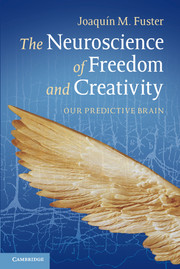7 - Liberty, responsibility, and social order
Published online by Cambridge University Press: 05 June 2014
Summary
Love and do what you want.
St. AugustineWhere there is no law, there is no freedom.
John LockeOur liberty, our ability to choose one course of action or another, emerges from the relationship of our cerebral cortex with our environment. As we have seen in previous chapters, any willed act results from the interactions between the perceptual and executive networks of the cortex, which are at the interface of our organism with the environment. In the free pursuit of our goals, that interface is continuously crossed in both directions by the PA cycle. We have also seen that, internalized in our cortex, we carry much of the outside world in a big bundle that includes our history, our culture, our mores, our traditions, our knowledge, and all the rest of our experience, which in the aggregate defines our persona and which Ortega (1961) calls circumstance (“I am myself and my circumstance”) and Dennett (2003) culture.
By now I trust I have succeeded in helping my reader reach the correct conclusion that the argument about the existence or nonexistence of free will, as an absolute all-or-none, is moot and not relevant to neuroscience. Freedom is graded, like most nervous functions, and so is responsibility, which is inextricable from it. We are indeed free, inasmuch as our brain, more specifically our cerebral cortex, has the option to take one action or another. But we are not completely free, inasmuch as its options are limited, and thus inasmuch as the brain has limits, and inasmuch as the society in which we live imposes on us limits of its own.
- Type
- Chapter
- Information
- The Neuroscience of Freedom and CreativityOur Predictive Brain, pp. 191 - 227Publisher: Cambridge University PressPrint publication year: 2013

